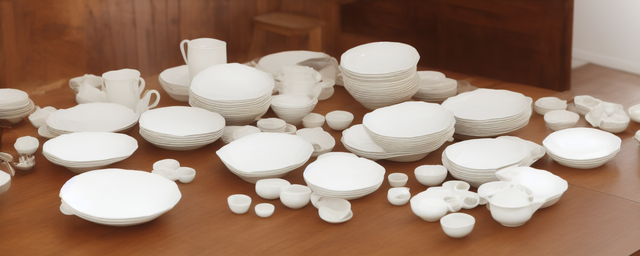
搪瓷餐具的危害
原|2024-04-26 18:41:52|浏览:85
Enamelware, also known as enamel or porcelain-coated cookware, is a type of dinnerware that has a coating of porcelain enamel fused to a metal base. While enamelware is popular for its durability, heat resistance, and aesthetic appeal, there are some potential hazards associated with its use.
One of the main concerns with enamelware is the presence of heavy metals in the enamel coating. Some enamelware products may contain lead, cadmium, or other toxic metals that can leach into food when the enamel is scratched, chipped, or damaged. Prolonged exposure to these heavy metals can lead to serious health issues, especially in children and pregnant women.
Another risk of using enamelware is the potential for the enamel coating to chip or crack over time. When the enamel is damaged, it can create sharp edges that may cut the skin or allow bacteria to grow, leading to food contamination and potential foodborne illnesses.
Furthermore, enamelware is not microwave-safe, as the metal base can cause sparks and damage to the microwave. Using enamelware in the microwave can also cause the enamel coating to crack or peel, releasing harmful chemicals into the food.
In addition, enamelware is not suitable for use on high heat sources, such as open flames or grills, as the enamel coating can melt or burn, releasing toxic fumes into the air.
Overall, while enamelware can be a stylish and durable option for dinnerware, it is important to be aware of the potential hazards associated with its use. To minimize risks, it is recommended to inspect enamelware regularly for any signs of damage, avoid using it in the microwave or on high heat sources, and replace any chipped or cracked pieces to ensure food safety.
猜你喜欢
- 茶的分类及代表品种
- 六大茶类的代表名茶分别有
- 茶的类型和代表
- 六大茶叶的分类及产地
- 庙的分类及代表
- 藻的分类及其代表
- 茶的分类及代表茶品特点
- 茶的分类及代表茶
- 简述茶类的分类及其代表性名茶
- 六大茶类的分类及代表茶
- 动物分类及代表
- 糖的分类及代表
- 茶的分类及代表茶叶
- 茶的分类及代表图
- 茶的分类及代表作
- 茶器按质地的分类及代表茶器
- 茶的分类及代表名茶教学设计
- 简述茶的分类及代表性名茶
- 请写出乌龙茶的分类及代表茶
- 法国雅文邑白兰地系列
- 雅文邑白兰地介绍
- 1952年法国雅文邑白兰地
- 法国雅玛邑白兰地
- 纽波利顿獒
- 法国犬品种
- 南非獒犬的优缺点
- 波尔多獒犬寿命
- 波兰狩猎犬
- 波尔多犬和罗威纳犬对比
- 波尔多犬和杜高对比
- 世界十大凶犬
- 护卫犬排行榜前十名
- 大红袍怎么泡效果好
- 大红袍怎么泡不开
- 大红袍怎么泡茶
- 大红袍怎么泡出来没颜色
- 大红袍怎么泡不苦
- 大红袍怎么泡多久
- 大红袍怎么泡才正确的特点
- 大红袍怎么泡没有柴味儿
- 大红袍怎么泡放多少合适
- 花香大红袍怎么泡
- 大红袍怎么泡茶好
- 大红袍是怎么泡的
- 大红袍怎么泡水好喝
- 大红袍用玻璃杯怎么泡
- 大红袍怎么泡味道浓一些
- 十大排名果花茶
- 十大花茶组合排名
- 十大花茶品种大全
- 十大花茶功效
- 十大花茶销量排行榜
- 十大花茶有哪些
- 十大花茶品种
- 十大花茶推荐
- 十大花卉排行榜
- 十大花卉
- 十大花茶调理内分泌
- 九五至尊秦昊明月关山
- 红茶冲泡工艺
为你推荐






































































